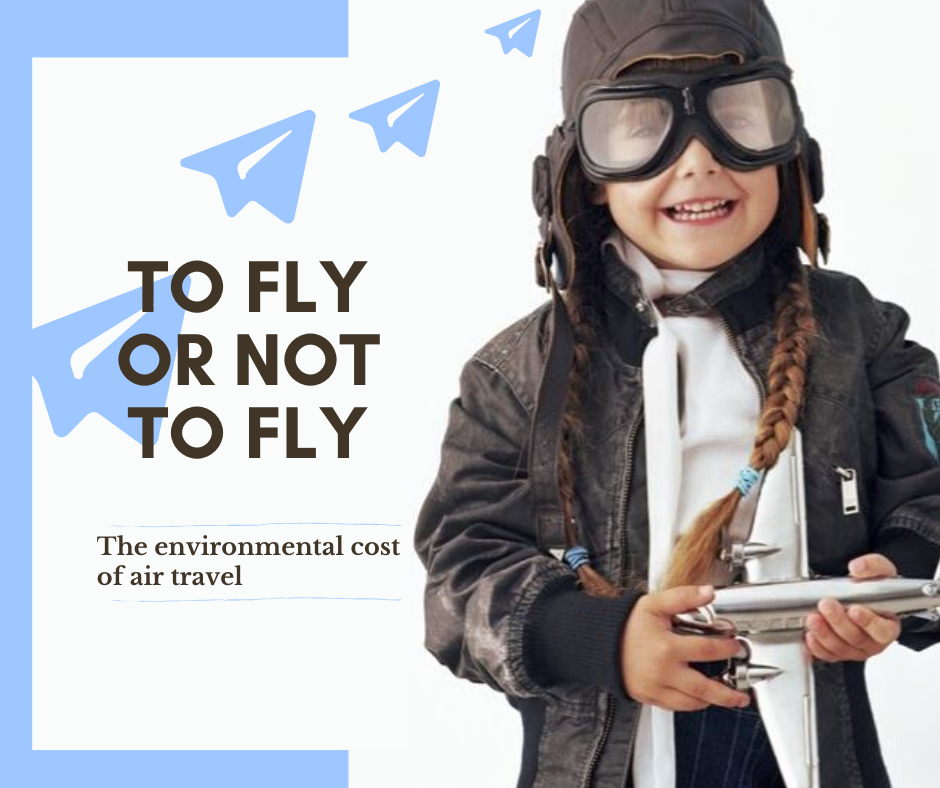
What is "Flight Shame"? Does it really work?

If you follow the news, you probably saw Greta Thunberg, the 16-year-old climate activist from Sweden crossing the Atlantic Ocean on a racing sailboat to attend the U.N. Climate Action Summit in New York in September. She will then make her way south to Santiago, Chile, to attend the U.N. Framework Convention on Climate Change in December.
Her sailboat journey has triggered a heated debate over how to encourage people to take climate action.
Her story made the news for refusing to fly and trying to travel with nearly zero carbon emissions. Obviously, her journey provoked a lot of strong reactions online, where she ended up being criticized for her efforts, by both climate crisis deniers and even some environmentalists who think that shame is not an effective tool.

That's how 'Flygskam' was born. The Swedish word, which translates to 'flight shame', is driving interest in climate-friendly trains, longer stays, and frequent flier taxes.
Flygskam' is the latest Scandinavian word to become popular, thanks to social media. But this time it's not about cozy, cuddly, relaxing feelings, but rather pinpointing that icky feeling you get when you board a plane, knowing how terrible it is for the environment. Thus, the literal translation from Swedish: flight shame.
If aviation was a country, it would be the 7th worst polluter globally.

Now, some countries might be harder to go flight-free than for others. It's easier to make a no-fly pledge when you live in Europe, a continent that's fortunate to be covered with intricate train lines, whereas in Canada or the US, it's almost impossible to move around without a car or a plane.
However, some people are not convinced that an outright personal ban on flying is the solution. What if, rather than shaming people for wanting to go places, we encouraged better and smarter uses of flight technology?
If more people flew less, we'd be further ahead than if a handful of people swore off flying altogether.
The best idea I've read for incentivizing this would be to tax frequent fliers or anyone who flies more than once per year. Suddenly flight prices would go up drastically to act as a deterrent.
Is shaming people for flying effective?

Apparently, in Europe it is.
Domestic flights in Sweden are declining and airport expansion plans are being reconsidered. Airline passenger growth shows signs of weakening in countries where flygskam is catching on.
There was a 3% fall last year in the number of passengers for domestic flights going through 10 of Sweden’s state-owned airports, compared with the year before.
The movement has not only taken aim at summer holiday flights, but also at airport expansion plans including Heathrow in London. There are already people who are adhering to personal no-fly resolutions and they say the overall experience was positive.
The key is to learn to enjoy the journey, to think of it as part of the trip, rather than expecting to be dropped into a foreign place.

In North America and Canada, however, it is much harder to reduce your impact because there are so few alternatives. It's pretty much impossible to get anywhere by train unless you're moving from one major city to another and at the same time, it's very time consuming and very expensive.
So for them, the solution would be to fly less often and fly more carefully. Or to increase taxes for frequent flyers. You would get one tax-free flight per year and then the taxes would just increase with every flight.
This would discourage people to fly this often and to seek other transportation options. This would also be a good incentive for governments to improve and develop train lines everywhere, making this type of transportation more accessible.
Flight-Free 2020 Challenge

A British campaign is asking people to pledge not to fly for a year.
Good luck trying that in North America.
Flight-free UK says, "One of the most effective things you can do to reduce your carbon footprint is fly less. Help prevent climate breakdown by pledging not to fly in 2020."
Flight Free UK is a people-powered campaign which asks people to agree not to fly in the year of 2020 – knowing that 100,000 others have pledged to do the same. It’s about taking collective responsibility to reduce the amount people fly in order to lessen our impact on the planet.
Flying less is one of the most powerful ways we as individuals can reduce our carbon footprint, and with experts predicting that we have just a handful of years to take meaningful action on climate change, there has never been a better time to address the issue.
But why flight-free?
In 2016 airlines carried 3.7 billion passengers. This is set to rise to more than 7 billion by 2035.
At the same time, climate scientists are warning that we have less than 12 years to make a significant reduction in our carbon emissions in order to avoid catastrophic climate change.
Flying is the fastest-growing cause of climate change.
Brits already fly more than the people of any other nation - twice as much as Americans.
Even if we take other steps to be environmentally friendly, one flight can completely wipe out all the other savings.
While technology is being developed to make aviation less polluting, for example through biofuels and electric planes, the only meaningful way to reduce emissions is to not fly in the first place. And we can't rely on policy-makers; even though the UK has targets to reduce emissions by 80% by 2050, tax on air travel remains low, and the aviation sector only continues to expand.
"We are facing a man-made disaster of global scale. If we don't take action, the collapse of our civilizations and the extinction of much of the natural world is on the horizon."
~ Sir David Attenborough
The point is that we are facing a crisis. A crisis that makes us think twice about any decision we make. What do we buy? Where do we buy it from? Should we eat less meat? How should we farm? How should we travel?
We can and we have to change our way of life in order to cope with the climate crisis. At the end of the day, it's all in our hands.
